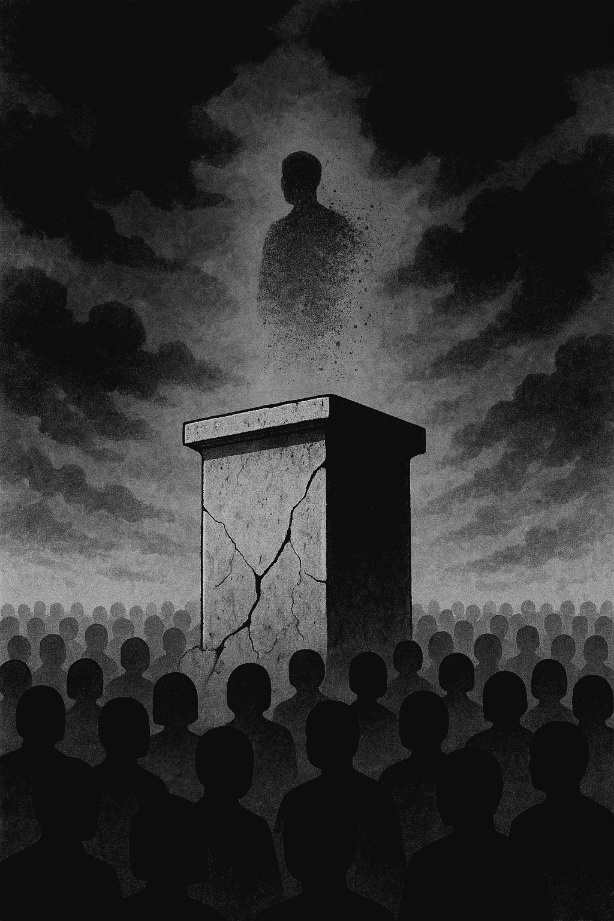
Opinion: Anwar’s PKR Is Crumbling — And It Matters for All of Us
12 Jul 2025 • 9:00 AM MYT
.jpg)
Mihar Dias
A behaviourist by training, a consultant and executive coach by profession

Microsoft Copilot
By Mihar Dias July 2025
Murray Hunter’s recent essay on the collapse of Parti Keadilan Rakyat (PKR) reads less like speculative commentary and more like a post-mortem report. https://www.facebook.com/share/p/19HxPrrj9d/
What was once Malaysia’s most potent symbol of political reform now resembles a relic from a different era — like an old Reformasi rally poster curling in the rain, half-forgotten, half-mourned.
Anwar Ibrahim’s personal odyssey from jailed dissident to prime minister was once sold as Malaysia’s great political redemption arc. It promised not just power for its protagonist, but structural reforms for a country long throttled by race-based politics, elite impunity, and a gummed-up economy.
Today, the party he built in his image — and the coalition he stitched together through royal intervention — is hemorrhaging credibility, support, and apparently even functioning branches.
The political implications of this collapse are far-reaching, and not merely because of PKR’s numerical value in Parliament. PKR was meant to be the conscience of Pakatan Harapan. It carried the burden of hope, of idealism, of unfulfilled promises. Its weakening signals not just the end of a party, but the erosion of a reform project many Malaysians hung their futures on. When PKR withers, it leaves behind a vacuum. And in Malaysian politics, nature abhors a vacuum.
The decline, as Hunter lays out, is not mysterious. It’s a textbook case of power corrupting, idealism curdling, and leaders mistaking survival for principle.
Anwar’s early moves — particularly elevating Ahmad Zahid Hamidi as deputy and stacking GLC boards with familiar faces — telegraphed a grim message to party loyalists: the old rules still apply.
Worse, it exposed Anwar’s leadership as transactional, not transformational. The reduction of Najib Razak’s prison sentence signaled to the public what they had long suspected: that the high rhetoric of reformasi was expendable currency in the marketplace of political expediency.
The economic pressures — spiraling costs of living, stagnant wages, hollow job growth — only deepened public disenchantment. Anwar’s government has neither the populist touch of Najib’s BR1M era nor the moral high ground of his pre-2022 campaign. What’s left is a Madani administration that speaks of inclusion while presiding over rising ethnic insecurities, legal regressions, and elite impunity.
If Murray Hunter is right — and the party is shedding branches and members in droves — it sets up a deeply unstable political horizon. Anwar, increasingly isolated, risks becoming Malaysia’s Theresa May: a leader fated to cling on not because of strength but because no one else wants to hold the crumbling facade.
The Sabah state elections later this year could be an early warning siren. Deputy president Nurul Izzah’s claim that PKR will win 13 seats rings more desperate than defiant. And should Anwar’s pending legal entanglements resurface — particularly the Yusoff Rawther case — it would add fuel to an already combustible political climate.
The collapse of PKR would also leave Pakatan Harapan badly exposed. The DAP, still solid in urban Chinese-majority seats, has little appetite to lead a multiethnic coalition alone. Amanah is too minor, and the professional-class Malay voters are unlikely to rally behind UMNO or PAS in a post-PKR scenario.
This is how political vacuums birth reactionary populism. If the reformasi generation leaves the field disillusioned, who takes their place? In Malaysia, where politics abhors both an honest man and an empty chair, the answer is rarely good.
For years, Anwar Ibrahim’s critics argued he wanted to be prime minister more than he wanted to govern. The events of the past year suggest they were right.
The tragedy is that a generation’s hope for a better Malaysia may well be the collateral damage of that ambition.
We are, yet again, watching a political fable unravel. The consequences will not be limited to PKR or Anwar Ibrahim’s legacy. It will reverberate through the country’s social fabric, its economy, and its already frayed sense of national purpose.
Malaysia doesn’t just need a new leader. It needs a new idea.
***
kt comments:
O Anwar, you're a sad disappointment for many of us, your supporters.
PKR' obituary has been written many, many times before.
ReplyDeleteQuite a number of obituaries written by people who are no longer around , either no longer around politically or physically.